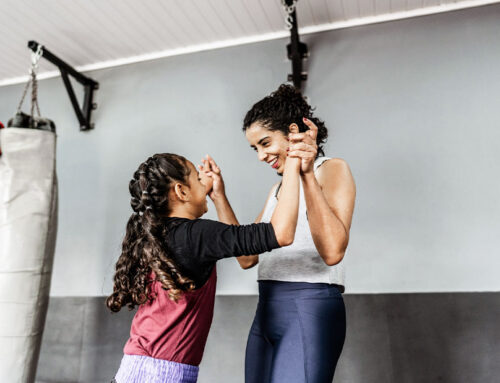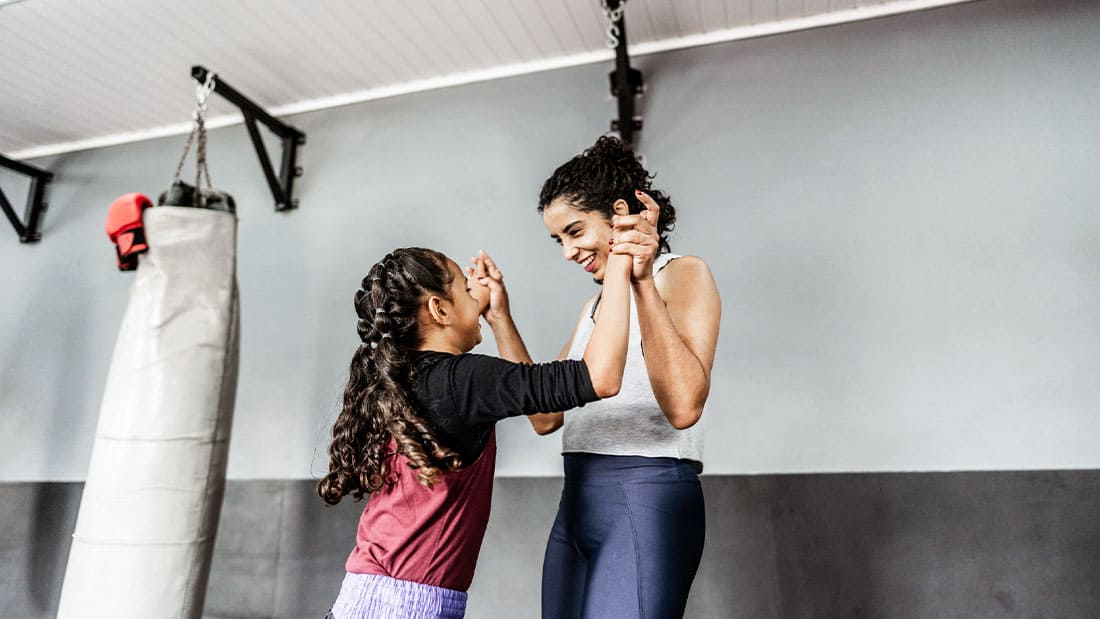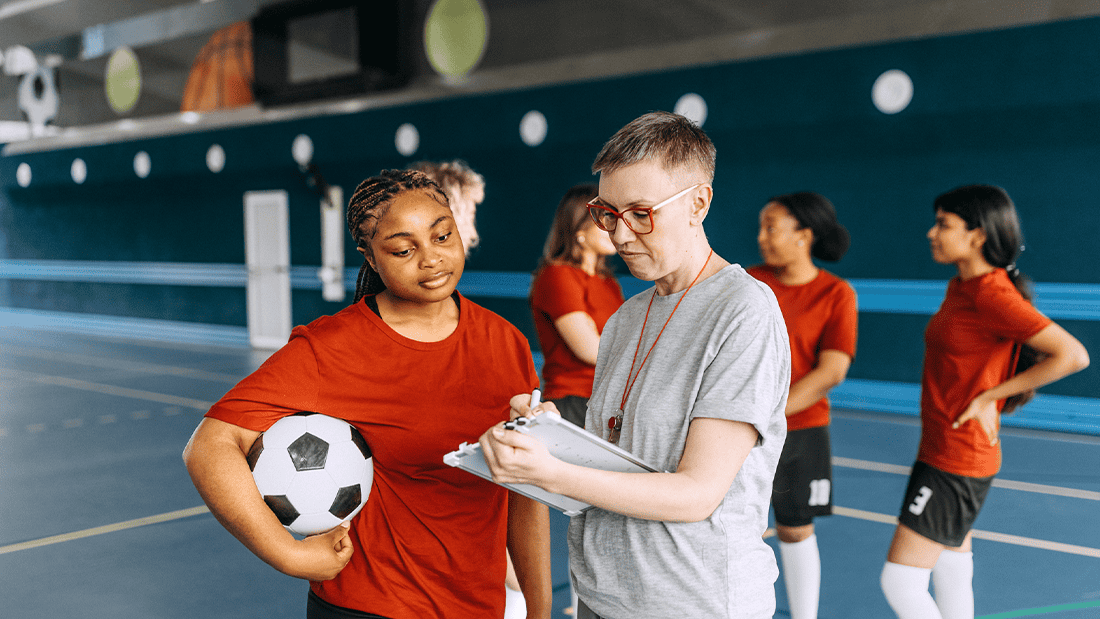4 Ways Sports Parents Fail Their Youth Athletes
“The children now love luxury; they have bad manners, contempt for authority; they show disrespect for elders and love chatter in place of exercise. Children are now tyrants, not the servants of their households. They no longer rise when elders enter the room. They contradict their parents, chatter before company, gobble up dainties at the table, cross their legs, and tyrannize their teachers.”
This quote is not from the 1970’s, 1960’s or even the 1950’s. It’s from Socrates, who was born in 470 BC!
Yet it doesn’t sound outdated, does it? Many modern adults view this generation of children in a similar manner to the way Socrates did. But to get to the root of the problem with the modern youth athlete, adults have to look in the mirror. It’s a tough pill to swallow, but it is us!
You and me. The parents are the problem, and it’s creating a generation of youth athletes who’re missing out on many of the values sports can create. Here are four ways we parents cause trouble with the way we raise our youth athletes today.
1. We Don’t Let Them Fail
I don’t want a kid striking out with the bases loaded to lose the game. No part of that is fun. It’s painful, and it can be embarrassing for the youth athlete.
However, these events have the potential to make a lasting impact if we let them.
We have the opportunity after these setbacks, to coach our kid up, and let them know that failure is an event, not a person. They are not a failure just because they failed. Then, we can reflect on what we can get better at. If we allow them to experience these harsh setbacks in sports at a young age, then they develop the resources to deal, handle and overcome these negative experiences. The alternative is that they have these setbacks for the first time in college or later in life, and they simply don’t know how to handle failure.
Our job as parents and coaches is to build capacity, not dependency. Do we allow them to fail or do we allow them to blame others for their own mistakes and failures? Or do we as parents blame others for our own child’s mistakes?
If so, we’re robbing them of one of sport’s most helpful life lessons.
2. We Don’t Allow Them to Take Ownership
One reason why I wrote Don’t “Should” on Your Kids: Build their Mental Toughness is because of a kid I saw at a swim practice.
He was on the side while everyone else was in the pool warming up. I asked if he was OK, and he replied that he forgot his goggles and his mom was late bringing them. Hmmm. I can guarantee on a road trip, this same kid will NEVER forget his hair gel. He forgot his own goggles, his mom is bailing him out, and now he’s blaming her for being late.
Want to know why we resent having to nag young athletes all the time? Why we’re constantly asking them to clean up their room, make sure they pack everything, or bring their water bottles? Because we never made it a priority for them to accept responsibility and the natural consequences that come with being unprepared. We just did it for them!
When we save them from messing up on a regular basis, we remove their sense of ownership and responsibility.
3. We Try to Give Them All the Answers
As parents, we know how challenging life can be. We’ve experienced it, we’ve gone through it, we’ve lived both the good and the painful. And we have a lot of wisdom because of it.
We know that life is tough! And since it is so difficult, we want to impart and share our experience, strength, and wisdom to those we love most. So, we try to give them the answers and let them know if you do A, B, and C, then you’ll be successful.
We want to impart our wisdom to them. But wisdom can only come from experience! You can’t google experience. So what we ultimately provide is knowledge, not wisdom. Wisdom comes from going through tough experiences and figuring out what it takes to weather or overcome them. For our children to truly gain wisdom, we must allow them to do this just as we did.
College coaches have often expressed to me their frustration with their players in this area. When adversity hits their players, their athletes cannot figure it out on their own. They want the coaches to tell them exactly how to fix it and what to do, and to do it right this second! The athletes aren’t to blame, however. It’s what we’ve been doing for them their entire life.
They ask questions like “Why am I struggling?”, “What’s going on?”, or “How do I fix this?” We immediately slide them the answers without allowing them to process the situation, reflect on the potential causes, develop their own game plan and execute it accordingly.
When we do this on a regular basis, we stifle the development of their own problem-solving and creative skills. There’s nothing wrong with some guidance, but our kids can’t always look to others for answers. It’s not how sport or life works. Things will go bad, and they have to be able to adjust and find a way on our own. Check out the article on 4 reasons to save the endangered athlete.
4. We’re Too Focused on Results
The majority of folks have no idea the talent level or sheer obsession it takes to become a professional athlete. However, 26% of parents have reported their kid could be a professional athlete.
My question when I hear this absurd number is simply, “Who told them that?”
We often make decisions based upon the outcome, results and future benefits sports can provide. The almighty college scholarship is what seems to drive it all.
RELATED: 6 Effective Ways of Getting an Athletic Scholarship
Unfortunately, when we obsess over the idea of our kid earning a scholarship, we soon find they are playing one sport year-round, and traveling all across creation to participate in a different tournament or showcase every weekend. The husband and wife must split responsibilities to take care of all of this, an issue that’s compounded when you have more than one kid. And this can start at a very early age for the athlete. Soon enough, we’ve lost control. This is how parents constantly wind up feeling like “If we don’t do this, we won’t be on the path to a scholarship.”
A scholarship is a wonderful accomplishment. But, it can’t be the main reason why your son or daughter is playing sports. If it’s the driver, then every single setback will lead to greater frustration on your part.
We need to stress and communicate the multiple benefits that simply playing and enjoying sports can provide. They include having fun, learning how to work hard, learning how to set and pursue goals, building resiliency and perseverance, learning communication and leadership, and lots else! Sport teaches whatever we want it to teach, as long as we allow it to do so. That’s where parents often need to take a step back and examine how we’re impacting our own children’s sports experience.
Photo Credit: nycshooter/iStock
READ MORE:
RECOMMENDED FOR YOU
MOST POPULAR
4 Ways Sports Parents Fail Their Youth Athletes
“The children now love luxury; they have bad manners, contempt for authority; they show disrespect for elders and love chatter in place of exercise. Children are now tyrants, not the servants of their households. They no longer rise when elders enter the room. They contradict their parents, chatter before company, gobble up dainties at the table, cross their legs, and tyrannize their teachers.”
This quote is not from the 1970’s, 1960’s or even the 1950’s. It’s from Socrates, who was born in 470 BC!
Yet it doesn’t sound outdated, does it? Many modern adults view this generation of children in a similar manner to the way Socrates did. But to get to the root of the problem with the modern youth athlete, adults have to look in the mirror. It’s a tough pill to swallow, but it is us!
You and me. The parents are the problem, and it’s creating a generation of youth athletes who’re missing out on many of the values sports can create. Here are four ways we parents cause trouble with the way we raise our youth athletes today.
1. We Don’t Let Them Fail
I don’t want a kid striking out with the bases loaded to lose the game. No part of that is fun. It’s painful, and it can be embarrassing for the youth athlete.
However, these events have the potential to make a lasting impact if we let them.
We have the opportunity after these setbacks, to coach our kid up, and let them know that failure is an event, not a person. They are not a failure just because they failed. Then, we can reflect on what we can get better at. If we allow them to experience these harsh setbacks in sports at a young age, then they develop the resources to deal, handle and overcome these negative experiences. The alternative is that they have these setbacks for the first time in college or later in life, and they simply don’t know how to handle failure.
Our job as parents and coaches is to build capacity, not dependency. Do we allow them to fail or do we allow them to blame others for their own mistakes and failures? Or do we as parents blame others for our own child’s mistakes?
If so, we’re robbing them of one of sport’s most helpful life lessons.
2. We Don’t Allow Them to Take Ownership
One reason why I wrote Don’t “Should” on Your Kids: Build their Mental Toughness is because of a kid I saw at a swim practice.
He was on the side while everyone else was in the pool warming up. I asked if he was OK, and he replied that he forgot his goggles and his mom was late bringing them. Hmmm. I can guarantee on a road trip, this same kid will NEVER forget his hair gel. He forgot his own goggles, his mom is bailing him out, and now he’s blaming her for being late.
Want to know why we resent having to nag young athletes all the time? Why we’re constantly asking them to clean up their room, make sure they pack everything, or bring their water bottles? Because we never made it a priority for them to accept responsibility and the natural consequences that come with being unprepared. We just did it for them!
When we save them from messing up on a regular basis, we remove their sense of ownership and responsibility.
3. We Try to Give Them All the Answers
As parents, we know how challenging life can be. We’ve experienced it, we’ve gone through it, we’ve lived both the good and the painful. And we have a lot of wisdom because of it.
We know that life is tough! And since it is so difficult, we want to impart and share our experience, strength, and wisdom to those we love most. So, we try to give them the answers and let them know if you do A, B, and C, then you’ll be successful.
We want to impart our wisdom to them. But wisdom can only come from experience! You can’t google experience. So what we ultimately provide is knowledge, not wisdom. Wisdom comes from going through tough experiences and figuring out what it takes to weather or overcome them. For our children to truly gain wisdom, we must allow them to do this just as we did.
College coaches have often expressed to me their frustration with their players in this area. When adversity hits their players, their athletes cannot figure it out on their own. They want the coaches to tell them exactly how to fix it and what to do, and to do it right this second! The athletes aren’t to blame, however. It’s what we’ve been doing for them their entire life.
They ask questions like “Why am I struggling?”, “What’s going on?”, or “How do I fix this?” We immediately slide them the answers without allowing them to process the situation, reflect on the potential causes, develop their own game plan and execute it accordingly.
When we do this on a regular basis, we stifle the development of their own problem-solving and creative skills. There’s nothing wrong with some guidance, but our kids can’t always look to others for answers. It’s not how sport or life works. Things will go bad, and they have to be able to adjust and find a way on our own. Check out the article on 4 reasons to save the endangered athlete.
4. We’re Too Focused on Results
The majority of folks have no idea the talent level or sheer obsession it takes to become a professional athlete. However, 26% of parents have reported their kid could be a professional athlete.
My question when I hear this absurd number is simply, “Who told them that?”
We often make decisions based upon the outcome, results and future benefits sports can provide. The almighty college scholarship is what seems to drive it all.
RELATED: 6 Effective Ways of Getting an Athletic Scholarship
Unfortunately, when we obsess over the idea of our kid earning a scholarship, we soon find they are playing one sport year-round, and traveling all across creation to participate in a different tournament or showcase every weekend. The husband and wife must split responsibilities to take care of all of this, an issue that’s compounded when you have more than one kid. And this can start at a very early age for the athlete. Soon enough, we’ve lost control. This is how parents constantly wind up feeling like “If we don’t do this, we won’t be on the path to a scholarship.”
A scholarship is a wonderful accomplishment. But, it can’t be the main reason why your son or daughter is playing sports. If it’s the driver, then every single setback will lead to greater frustration on your part.
We need to stress and communicate the multiple benefits that simply playing and enjoying sports can provide. They include having fun, learning how to work hard, learning how to set and pursue goals, building resiliency and perseverance, learning communication and leadership, and lots else! Sport teaches whatever we want it to teach, as long as we allow it to do so. That’s where parents often need to take a step back and examine how we’re impacting our own children’s sports experience.
Photo Credit: nycshooter/iStock
READ MORE:












